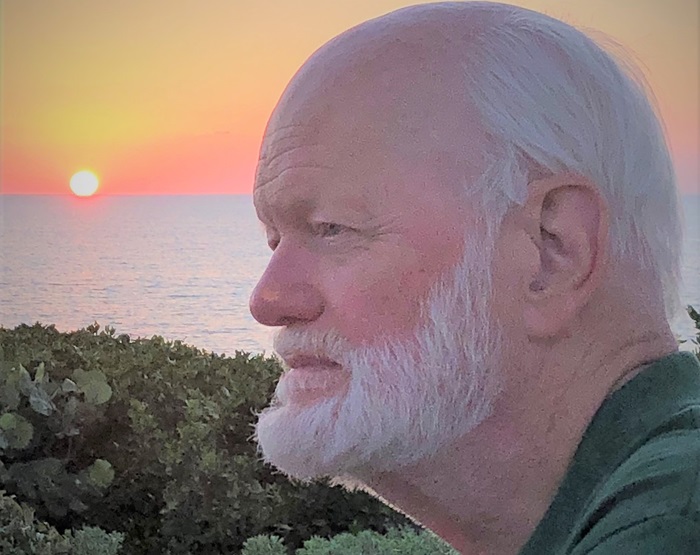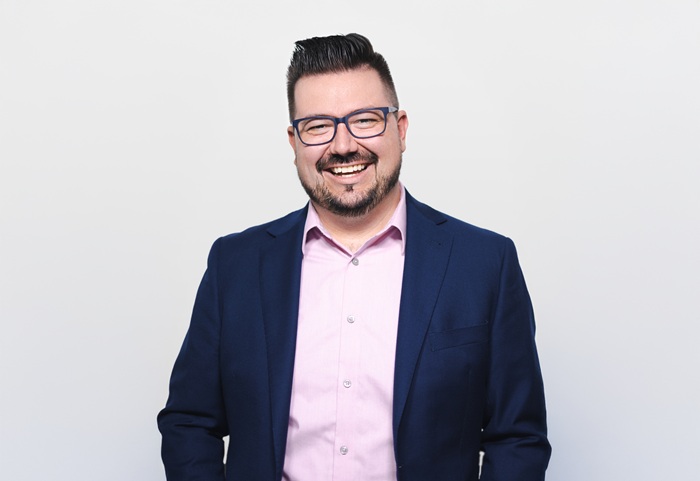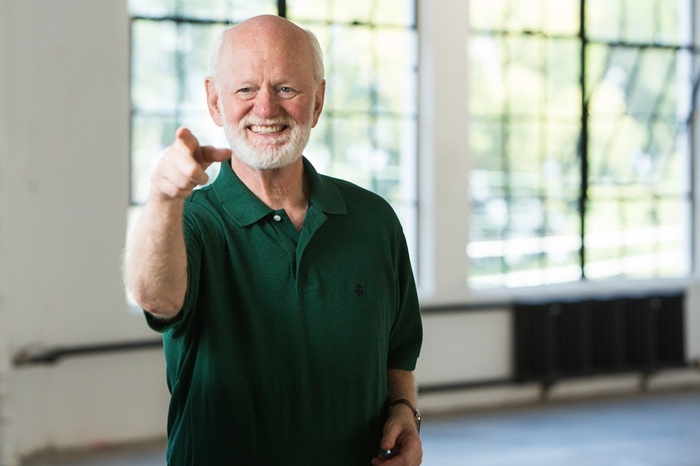Business Leaders Who Really Know How to Listen!
By Chris Benguhe, RaeAnne Marsh and Elaine Pofeldt | May 9, 2024 10:49 am
And how it transformed their companies and led to great successes!

Effective listening improves relationships, trust and decision-making, and leads to greater collaboration, creativity and innovation. (Image: Pixabay/Gerd Altmann)
The critical difference that can come from listening with a caring heart and ear underlies an anecdote our Center for Social Capital Founder Chris Benguhe shares in a book he wrote a few years back. He talked about heroism from a perspective slightly different from most — looking Beyond Courage (as he titled his book) at the oft-overlooked traits of what it takes to be a hero in our day-to-day lives. And the ability and willingness to really listen was one of those. The story told to illustrate the value of listening was a powerfully compelling true account of a high-school teacher who helped stop a Columbine-style shooting by simply being there to listen to her students, proving she valued their thoughts and concerns. The trust she inspired compelled one of those students — a troubled teen who felt unheard by others — to come forward and confide in her teacher a dastardly plot her friends were unfurling. The plan was foiled in the nick of time, and it was all thanks to the miraculous and heroic value of listening.
The power of that heroic ability extends into every aspect of our lives — especially business, where studies show the overwhelming majority of workers feel like they are not heard by their employers. As do the majority of customers.
Yet so few business leaders really do anything about it, or even really see the value of listening beyond a polite gesture here and there in company memos or emails. Maybe that’s mostly because so many leaders are often so busy talking and telling people what they think they need to hear.
But just like that troubled teen in Chris’s book, how many adult employees out there do you think are having their own troubles, their own issues, both personal and professional? How many potentially unheard voices are inside all of us? The desire to be heard and valued is a universal and deep-seated need that, when unmet, at worst can leads to disasters, but at a bare minimum leads to decreased productivity, job dissatisfaction, low commitment, burnout or even employees seeking out work with another organization they believe will value them.
But beyond the ability to prevent the negative, there is the tremendous potential upside and so many ways leaders can benefit from listening in ways they might never even imagine. Effective listening improves relationships, trust and decision-making, and leads to greater collaboration, creativity and innovation.
We didn’t want this to be the typical “here are five ways to listen to your employees” article, even though there surely is a value to those. But we thought it was more interesting to go outside the box and a little more inside the companies and minds of the Social Capital leaders we are honoring this month and showcase some pretty powerful, life-changing and transformative anecdotes about how these leaders changed everything by simply stopping the talking and opening up their ears — and their hearts.
So, here are six social capital leaders this month — who we feel really exemplify the potential power of listening — explaining in their own words what they did, how they did it, and why it made such a monumental difference in their business.
Are YOU listening?
Brian Niccol, chairman & CEO of Chipotle
One of the pieces of feedback we got, too, was, “Is there a way to make the job of dishwasher not so messy? Is there a way to make frying chips not so time-intensive?”
We recently announced we got this robotic arm we call Chippy that’s now frying chips. But when we showed this robot at our all-managers conference, Kurt, the guy who runs technology, got a standing ovation. Because the general manager knows that’s a hard job for them to staff. Because it’s a hard job. So, if we could figure out how to fry chips that takes out the hardest part — which is being right over the fryer — and all you have to do is bag them, he will have people be happier on his team and in his restaurant.
It’s literally finding those types of things that, on the surface, is like “how big a deal is it to find a solution to start frying chips?” Well, it is a big deal.

“I discovered how to bring value by not talking, but by listening with the intent to learn” – Ginni Rometty (Image: Pixabay/Gerd Altmann)
Ginni Rometty, former chairman & CEO of IBM
I consider preparation the ultimate compliment to anyone and essential to being in service of others. That said, no matter how much I prepared, I never assumed I knew it all.
I discovered how to bring value by not talking, but by listening with the intent to learn [during the years I spent in consulting at IBM].
I’m genuinely curious about people and never particularly liked talking about myself. I’d much rather hear about others. With clients, I became strategically curious, listening for insights and information that I could use to help them. I also listened for points of connection; having something or someone in common helped us relate and establish an authentic bond.
Listening with the intent to learn allowed me to make better decisions on behalf of others.
Ed Liddy, the former CEO of Allstate, was a client I worked closely with in the 1990s. He had a saying that paraphrased a Greek philosopher, “The good Lord gave us two ears and one mouth for a reason; you should conduct yourself in roughly that proportion.” Ed was a values-based leader, well respected in the company and outside, and a voracious learner. Under his leadership, the seventy-year-old insurance company was grappling with issues of reinvention as internet start-ups began selling policies online, impacting Allstate’s revenue. Ed was trying to figure out how Allstate could integrate online sales without alienating its retail agents. I traveled regularly to Allstate’s headquarters just outside Chicago. Ed and I sat in his office and talked. Our dialogues were a safe space for him to ponder out loud, away from scrutiny, in his efforts to move his company forward.
“I feel like a tortoise at the starting line,” he told me during one of my visits, as we overlooked an expansive corporate campus and talked about his industry’s shifting landscape.
To help Ed and other insurance industry clients, I started a research group to study industry trends. Not many if any tech companies created original content back then, and I wanted us to be smart about the big business picture, not just the technology. Without context we couldn’t problem solve. We partnered with outside organizations, including the University of North Carolina, to examine how people were starting to use the internet to access, distribute, and analyze information. Realize, only about 45 million people used the internet back then; today it’s about five billion. We published reports with our own “ah-ha” conclusions. Being relevant in the future meant incumbent insurance businesses like Allstate had to develop “high-tech touch” with customers as consumers got more electronically connected. No more paper- and face-to-face-only interactions. One of our reports, “Landscaping the Future,” identified four scenarios that might unfold over the next decade, including one predicting that by 2005 every consumer would be using the internet to patch together insurance products from multiple vendors, without ever interacting with humans. That’s standard practice today, but twenty years ago it was a disruptive, even scary notion for an established company.
I could see how proactive research made me and my team smarter about our clients’ businesses and elevated our conversations from sales to business strategy so we could provide more value. For clients like Ed, this kind of insight made us more than salespeople in his eyes, but people that truly wanted to help them solve problems.
I discovered that listening breeds knowledge, knowledge breeds credibility, and credibility earns trust that allows relationships to flourish. It’s in candid collaboration with those I was in service of that I often discovered the most valuable “ah-has.”
[Excerpted with permission from Good Power (Harvard Business Review Press, 2023) by Ginni Rometty]

“When you teach people the skills of listening, you are teaching them the skills of caring,” – Bob Chapman (Image: Pixabay/John Hain)
Bob Chapman, CEO & chairman of Barry-Wehmiller Companies
The practice I developed about 20 years ago and have continued was to have a listening session and ask our global team members how they experience our culture. Remember, we have an active education program with our Barry-Wehmiller University to transform our global leaders from management to leadership; from using people to achieve results to caring for those we have the privilege to lead. So, it is much more than me, as we are creating truly human leaders who have the skills to listen with empathy, not judgment; to recognize the goodness in others in thoughtful ways; and to seize the opportunity to serve others.
This unique combination of learning experiences has created a culture which our people describe as a family, which means a place where they feel safe and cared for. So, listening to all our company stakeholders is what we all do — and we don’t listen to debate or judge but to validate their worth.
By taking the time to have frequent global listening sessions, I don’t drown in the noise, but rather I revel in the beauty of people around the world. It fills my heart with joy and shows I care, which is the number one role of a leader!
When you teach people the skills of listening, you are teaching them the skills of caring, and we don’t experience technical challenges in doing this. In fact, what was a great positive surprise for us is that, while COVID was highly contagious, caring is even more contagious than COVID!
The biggest challenge for most organizations is to change the lens through which you see the people in your span of care. We are taught in education and experience in the real world to use people for our success. We see them as functions for our success. The biggest challenge is to reverse this lens so that you see those you have the privilege to lead as someone’s precious child who simply wants to know they matter!
The key to our progress in caring is my willingness to constantly share this message and to have our actions as leaders align with these truly human values. And remember, we see this brokenness in every part of society. It is creating a poverty of dignity because, when people feel used, it creates a lack of dignity and it creates anger and unrest — which is what we are seeing.
The good news is that we don’t need the government to do anything; we simply need to elevate the purpose of our education curriculum to embrace human skills of listening and caring for others with our academic curriculum. This is not academic theory; it is what we at Barry-Wehmiller are actually doing, and it works globally. People simply want to feel cared for rather than used.
Austen Allred, co-founder & CEO of Bloom Institute of Technology (BloomTech)
So, we started out teaching some free classes, just to get people interested. Then we reached out to the people in the classes and said, “You seem like you’re doing really well and you seem to have a knack for this. Do you want to do it full-time?” For every, every student we talked to, it was, “I would love to, but I can’t.”
So, originally, it started out by saying to a couple of students that I personally said, “I’ll cover your tuition. Then, if it works, you pay me back.” It gradually became more institutionalized. Normally, we would send that email to our list and you’d get an application or two from people who are interested, and we started saying, “Hey, what if we can cover most of the tuition for you?” And all of a sudden, one person applying turned into a hundred or 200.
Then, when we finally said, “Let’s figure out how to make this completely free up front,” all of a sudden we were getting thousands of applications. Now we see a thousand applications a month.
The challenge now isn’t in bringing in students, but it’s making sure that students are successful and get hired, which is probably the right place for us to focus our time and effort and energy now.

“The first step to gather feedback from different stakeholders … is to establish and maintain diverse channels for collecting that feedback.” – Robert Glazer (iStock: Makhbubakhon Ismatova)
Robert Glazer, founder, chairman of the board & former CEO of Acceleration Partners
The first step to gather feedback from different stakeholders in any organization is to establish and maintain diverse channels for collecting that feedback, including town halls, one-on-one reviews, skip levels and surveys. These different methods cater to different stakeholder needs and can encourage a wide range of feedback in different formats.
Equally important is, then, transparently communicating the feedback outcomes back to the organizations. Leaders should articulate what they have heard, distinguishing between what can be changed immediately, what will be considered for future changes, and what will not change and is non-negotiable. This not only validates the time and effort stakeholders put into providing their feedback, but also reinforces that they are being heard by showing their input is taken seriously and acted upon where possible.
Doing this creates a continuous loop of feedback and improvement that balances the right amount of feedback and action without overreacting to a vocal minority of viewpoints.
Antonio Nuño, co-founder & CEO Someone Somewhere
Someone Somewhere is a brand that works with indigenous artisans in rural communities. What we do is, we combine their traditional handcrafts with sustainable materials, modern design, a lot of technology and connections to the market so they can raise out of their poverty line and we can create products that are better for the planet and for the people who make them. …
At first, it was very difficult because we arrived with some ideas of stuff — like making apps and the way we thought things should work, and we tried dozens of different ways. We knew the key was finding a very, very scalable way of working with the artisans because, if we’re going to do this, we need to build something where we’ll be able to make millions of products with artisans — because that’s the only way we’ll have a real impact. So, after a lot of different things, one day we were, like, why don’t we just ask the community, “How would they do it?” And their idea was ten times better than ours, so I think a key learning was, if you want to help someone, listen more than talk.




